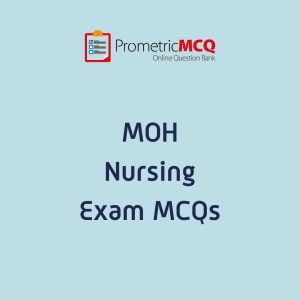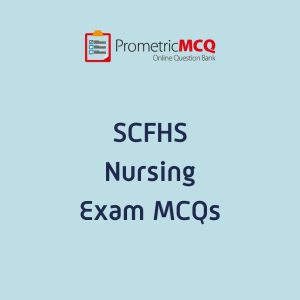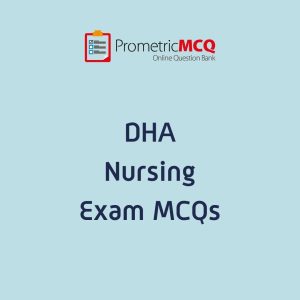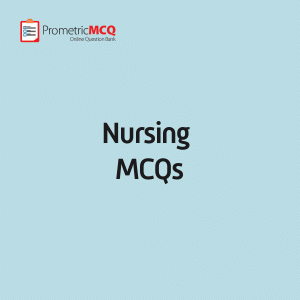
Saudi Prometric Exam Syllabus for Nurses
Webmaster2024-04-20T18:22:51+00:00Table of Contents
ToggleA Complete Guide to the Saudi Prometric Exam Syllabus for Nurses
Are you a nurse looking to work in Saudi Arabia? If so, you’ll need to pass the Saudi Prometric Exam. But don’t worry, we’ve got you covered! In this comprehensive guide on Saudi Prometric Exam Syllabus for Nurses, we’ll break down everything you need to know about the exam syllabus for nurses.
From key topics to study tips, we’ve got all the information you need to ace this important test. So grab your study materials and get ready to conquer the Saudi Prometric Exam!
Introduction: What is the Saudi Prometric Exam?
The Saudi Prometric Exam, also known as the Saudi Licensing Exam or SLE, is a standardized test required for all healthcare professionals who wish to work in the Kingdom of Saudi Arabia. It is administered by the Saudi Commission for Health Specialties (SCFHS) and is one of the mandatory requirements for obtaining a professional license to practice in the country.
This exam was introduced to ensure that all healthcare practitioners, including nurses, have an adequate level of knowledge and skills to provide safe and effective care to patients in accordance with local laws and regulations. The exam assesses not only theoretical knowledge but also practical application through clinical scenarios.
Overview of the Saudi Prometric Exam Syllabus for Nurses
| Topic | Description | Key Focus Areas |
|---|---|---|
| Fundamental Nursing Skills | Basic patient care and nursing procedures | Patient safety, vital signs monitoring, basic life support |
| Medical-Surgical Nursing | Adult health nursing practices | Disease management, surgical care, pharmacology |
| Maternal and Child Health | Obstetrics and pediatric nursing | Prenatal care, childbirth, neonatal care |
| Community Health Nursing | Public health and community healthcare | Disease prevention, health promotion, epidemiology |
| Mental Health Nursing | Psychiatric nursing practices | Mental health assessment, therapeutic communication, crisis intervention |
| Leadership and Management | Nurse’s role in leadership and management | Team leadership, decision-making, healthcare policy |
| Research and Ethics | Research and ethical practices in nursing | Ethical principles, research methodologies, evidence-based practice |
Who needs to take the Saudi Prometric Exam?
All foreign-educated nurses who wish to practice in Saudi Arabia must take and pass the Prometric Exam. This includes registered nurses (RNs), licensed practical nurses (LPNs), and vocational nurses (VNs). Nurses who are already licensed in their home country may still need to take this exam as part of the licensing process in Saudi Arabia.
What does the exam cover?
The content of the Saudi Prometric Exam is based on international nursing standards, such as those set by American Nurses Credentialing Center (ANCC) or National Council Licensure Examination (NCLEX). However, it also includes topics specific to healthcare practices in Saudi Arabia. The syllabus covers a wide range of nursing topics, including:
- Basic Sciences: This section covers anatomy, physiology, pharmacology, microbiology, biochemistry, and other fundamental sciences that form the basis of nursing practice.
- Nursing Fundamentals: Topics such as infection control, wound care management, patient safety measures, and vital signs monitoring are included in this section.
- Adult Medical-Surgical Nursing: This section focuses on diseases and conditions commonly seen in adult patients, such as cardiovascular disorders, respiratory disorders, and endocrine disorders, among others.
- Maternal and Child Health Nursing: This section covers topics related to pregnancy, labor and delivery, postpartum care, neonatal care, and pediatric nursing.
- Mental Health Nursing: Topics such as mental health disorders, therapeutic communication, and psychosocial interventions are included in this section.
- Community Health Nursing: This section focuses on public health principles and community-based nursing practices.
- Professional Issues: Topics related to nursing ethics, legal considerations for practice in Saudi Arabia are covered under this section.
The Prometric Exam consists of multiple-choice questions (MCQs) with four options and only one correct answer. The total number of questions may vary based on the level of licensure being pursued (RN or LPN). Candidates have a maximum of 4 hours to complete the exam.
The Saudi Prometric Exam is a crucial step for foreign-educated nurses who wish to work in Saudi Arabia. A thorough understanding of the exam content and diligent preparation is necessary to pass this challenging test successfully.
Overview of the Saudi Prometric Exam Syllabus for Nurses: What Topics are Covered?
The Saudi Prometric Exam is a mandatory requirement for nurses who wish to work in the Kingdom of Saudi Arabia. It is a computer-based exam that assesses the knowledge and skills of nurses in various areas of nursing practice. In order to pass the exam, it is crucial for nurses to have a thorough understanding of the exam syllabus and familiarize themselves with the topics that will be covered.
The Saudi Prometric Exam syllabus consists of four main subject areas: Nursing Fundamentals, Medical-Surgical Nursing, Maternal and Child Health Nursing, and Psychiatric and Community Health Nursing. These subject areas are further divided into specific content categories, each with its own set of subtopics.
In the Nursing Fundamentals section, nurses will be tested on their understanding of basic nursing concepts such as patient safety, infection control, pharmacology, and documentation. This section also covers important topics related to legal and ethical principles in nursing practice.
The Medical-Surgical Nursing section focuses on assessing a nurse’s knowledge in caring for patients with medical or surgical conditions. Nurses can expect questions on topics such as respiratory disorders, cardiovascular diseases, gastrointestinal disorders, musculoskeletal problems, and emergency care.
For those specializing in maternal and child health nursing, this section covers essential concepts related to antenatal care during pregnancy, labor and delivery management, postpartum care for mothers and newborns, as well as pediatric nursing.
The last section of the exam syllabus is dedicated to psychiatric and community health nursing. Nurses will be tested on their understanding of mental health disorders such as depression, anxiety disorders, schizophrenia as well as community health issues such as immunization programs and communicable diseases.
It is important for nurses preparing for the Saudi Prometric Exam to not only focus on studying these specific subjects but also have a comprehensive understanding of how these topics relate to each other. The exam may include questions that require an integrated approach towards patient care rather than simply testing knowledge in isolated topics.
In addition to the above-mentioned subject areas, there may also be questions on research and evidence-based practice, nursing leadership and management, and professional development. These additional topics are crucial for nurses to understand as they demonstrate their ability to apply their knowledge in real-life situations.
As a comprehensive understanding of the exam syllabus is crucial for success, it is recommended that nurses refer to official study materials provided by Prometric or consult with experienced professionals who have taken the exam before. Adequate preparation will not only help nurses pass the exam but also equip them with the necessary skills and knowledge to provide quality care to their patients in Saudi Arabia.
Preparing for the Exam: Study Tips and Resources
Studying for any exam can be a daunting task, especially when it comes to a licensing exam like the Saudi Prometric Exam for nurses. However, with the right study tips and resources, you can effectively prepare yourself and increase your chances of passing the exam on your first try. In this section, we will discuss some useful study tips as well as recommend resources that will aid in your preparation for the Saudi Prometric Exam.
- Familiarize yourself with the exam format and syllabus.
Before diving into studying, it is important to familiarize yourself with the format of the Saudi Prometric Exam and its syllabus. This will give you an idea of what to expect on the actual exam day, making you feel more confident and less anxious. Additionally, understanding the syllabus will help you plan out your study schedule accordingly. - Create a study schedule:
Creating a study schedule helps in organizing your time efficiently and ensures that you cover all topics before the exam date. Make sure to allocate enough time for each subject according to their weight in the syllabus and leave some extra time for revision. - Utilize practice questions:
Practice questions are an excellent way to test your knowledge and identify areas where you need improvement. The Saudi Commission for Health Specialties (SCFHS) provides sample questions on their website, which can help you get familiar with how questions are structured in the actual exam. - Join Study Groups or Online Forums:
Joining study groups or online forums allows you to connect with other nurses who are also preparing for the Saudi Prometric Exam. You can exchange study materials, share tips, discuss difficult topics, and motivate each other during this journey. - Use Review Books or Study Guides:
There are several review books or study guides available that cover all topics included in the Saudi Prometric Exam syllabus. These books provide a comprehensive overview of the subject matter and can be a valuable resource for your preparation. - Attend Review Courses:
If you prefer a more structured approach to studying, you can consider attending review courses specifically designed for the Saudi Prometric Exam. Experienced instructors who lead these courses offer in-depth explanations and methods for responding to exam questions.
With these study tips and resources, you can confidently prepare yourself for the Saudi Prometric Exam and increase your chances of success. Remember to stay focused, maintain a positive attitude, and give yourself breaks when needed to avoid burnout. Good luck on your journey towards becoming a licensed nurse in Saudi Arabia!
Understanding the Different Sections of the Exam:
The Saudi Prometric Exam is a crucial step for nurses looking to work in the Kingdom of Saudi Arabia. It is a standardized exam that tests their knowledge and skills in various areas of nursing, such as medical-surgical, maternal-child health, and community health. To help you better prepare for this exam, it is essential to understand the different sections that make up its syllabus.
- Medical-Surgical Nursing:
This section comprises the largest portion of the Prometric Exam syllabus and covers topics related to adult nursing care. It includes concepts such as medical emergencies, pharmacology, infection control, and wound care management. Nurses need to have a strong foundation in these areas, as they are vital for providing safe patient care. - Maternal-Child Health Nursing:
As the name suggests, this section focuses on nursing interventions related to women’s health during pregnancy, childbirth, and the postpartum period, as well as newborn care. It also covers topics such as breastfeeding support and family planning education. - Community Health Nursing:
This section evaluates a nurse’s understanding of public health principles and their role in promoting health within communities. Topics covered include epidemiology, communicable disease management, disaster response planning, and environmental health. - Mental Health Nursing:
This section assesses a nurse’s ability to provide mental health support to patients with psychiatric disorders or those experiencing psychological distress. Topics included are therapeutic communication techniques, psychotropic medication administration, crisis intervention strategies and substance abuse treatment. - Pediatric Nursing:
This section focuses on caring for infants and children from birth up until adolescence. It covers topics such as growth and development milestones, monitoring, common pediatric illnesses, immunization schedules, childhood nutrition guidelines. - Geriatric Nursing:
With an aging population globally , this section has become increasingly important in the healthcare industry . It evaluates nurses’ knowledge about age-related changes , geriatric assessments tools , managing chronic illnesses commonly seen in older adults , and providing age-appropriate care.
It is essential to have a good understanding of all these sections as they cover the core areas of nursing practice. The Prometric Exam syllabus is designed to ensure that nurses are well-equipped to handle various patient populations and healthcare settings in Saudi Arabia. Therefore, it is crucial to study each section thoroughly and be prepared for any questions that may arise from them.
Understanding the different sections of the Prometric Exam syllabus for nurses is crucial for success. Each section covers a specific aspect of nursing, and having a strong grasp on all of them will help you confidently tackle the exam. Make sure to allocate your study time accordingly and focus on strengthening your knowledge and skills in each area. Good luck!
– Nursing Fundamentals
Nursing Fundamentals is a crucial section of the Saudi Prometric Exam syllabus for nurses. It covers the fundamental principles and concepts of nursing, including patient care, infection control, vital signs monitoring, medication administration, and basic nursing procedures. This section aims to assess a nurse’s understanding and application of fundamental nursing skills and knowledge.
One key topic in this section is patient care. Nurses are expected to have a strong understanding of how to provide safe and effective care for their patients. This includes addressing patients’ physical, emotional, cultural, and spiritual needs. Nurses must also be knowledgeable about different types of patient care settings such as acute care hospitals, long-term care facilities, and home health care.
Infection control is another critical aspect of Nursing Fundamentals that will be tested in the Prometric Exam. Nurses play a crucial role in preventing the spread of infections within healthcare settings by following proper hand hygiene protocols, using personal protective equipment when necessary, and adhering to isolation precautions. Knowledge about different types of infections and their modes of transmission is essential for nurses to effectively prevent and control outbreaks.
Vital signs monitoring is an integral part of assessing a patient’s condition. In this section, nurses will be tested on their ability to accurately measure and document vital signs such as temperature, pulse rate, respiratory rate, blood pressure, oxygen saturation levels etc. They should also understand the significance of abnormal findings and know when to report them to the appropriate healthcare professional.
Medication administration is a crucial responsibility for nurses that requires careful attention to detail. In this section of the exam syllabus,the candidate’s knowledge regarding different drug categories such as antibiotics or analgesics will be assessed along with their understanding of dosage calculation methods and medication administration routes.
Basic nursing procedures involve various skills such as wound dressing changes or catheterization techniques that are necessary for providing quality patient care. Nurses must demonstrate proficiency in these procedures while adhering to infection control practices and respecting patient’s privacy and dignity.
Nursing Fundamentals is a broad section that covers the essential knowledge and skills required for nurses to provide competent and safe care to their patients. It lays the foundation for all other nursing specialties and plays a significant role in ensuring quality healthcare delivery. Aspiring nurses must have a thorough understanding of this section to pass the Saudi Prometric Exam successfully.
– Medical-Surgical Nursing
Medical-surgical nursing is a critical part of the nursing profession and involves caring for patients who are acutely or chronically ill. Medical-surgical nurses are responsible for providing comprehensive care to patients of all ages with various medical conditions, including surgical interventions. This section will provide a detailed overview of the key topics covered in the Saudi Prometric Exam syllabus for medical-surgical nursing.
- Anatomy and Physiology: A strong understanding of human anatomy and physiology is essential for medical-surgical nurses as they care for patients with complex health issues. This topic covers the structure and function of different body systems, including respiratory, cardiovascular, musculoskeletal, gastrointestinal, and neurological systems.
- Pharmacology: Knowledge of pharmacology is crucial for nurses as they administer medications to patients in their care. The Prometric Exam syllabus includes questions on drug classifications, administration routes, adverse reactions, and medication interactions.
- Nursing Process: The nursing process serves as a framework for delivering patient-centered care. It involves five steps – assessment, diagnosis, planning, implementation, and evaluation – that guide nurses in providing effective care to their patients.
- Infection Control: As healthcare-associated infections continue to pose a significant threat to patient safety globally, it is crucial for medical-surgical nurses to have an in-depth understanding of infection control practices. The Prometric Exam syllabus includes questions on standard precautions, isolation techniques, and sterilization methods.
- Wound Care Management: Medical-surgical nurses encounter various types of wounds in their day-to-day practice; hence it’s vital to have knowledge about wound healing principles and dressing techniques to promote optimal wound healing outcomes.
- Cardiovascular Disorders: Cardiovascular diseases are among the leading causes of mortality worldwide; therefore medical-surgical nurses must have extensive knowledge about common cardiovascular disorders such as hypertension, coronary artery disease (CAD), heart failure (HF), myocardial infarction (MI) and their management.
- Respiratory Disorders: Medical-surgical nurses must be equipped with the skills and knowledge to provide care for patients with respiratory disorders such as chronic obstructive pulmonary disease (COPD), asthma, pneumonia, and acute respiratory distress syndrome (ARDS).
- Gastrointestinal Disorders: This topic covers common gastrointestinal disorders like gastritis, peptic ulcer disease (PUD), gastroesophageal reflux disease (GERD), inflammatory bowel diseases, and their nursing management.
- Musculoskeletal Disorders: Understanding common musculoskeletal disorders like fractures, osteoarthritis, rheumatoid arthritis, and osteoporosis is crucial for medical-surgical nurses as they care for patients with these conditions.
- Endocrine Disorders: Prometric Exam syllabus also includes questions on endocrine disorders such as diabetes mellitus type 1 and type 2, thyroid disorders, Addison’s disease, and Cushing’s syndrome.
Medical-surgical nursing is a vast field that requires extensive knowledge and skills to provide safe and effective patient care. The Saudi Prometric
– Obstetrics & Gynecology Nursing
Obstetrics and gynecology nursing is a specialized field of nursing that focuses on providing care to women during pregnancy, childbirth, and postpartum as well as addressing various health concerns related to the female reproductive system. This field requires specialized knowledge, skills, and a compassionate approach towards women’s health.
In Saudi Arabia, obstetrics and gynecology nurses play a crucial role in promoting maternal and infant health through their expertise in prenatal care, labor support, and postnatal care. They also provide essential services such as family planning counseling, screening for sexually transmitted infections (STIs), breast examinations, Pap smears for cervical cancer detection, and menopause management.
The Saudi Prometric exam syllabus for obstetrics and gynecology nursing covers a wide range of topics that are vital for any nurse working in this area. The following is an overview of the main areas that are included in the exam:
- Anatomy and Physiology: Nurses need to have a thorough understanding of the female reproductive system’s anatomy and physiology to provide effective care. The exam may include questions about the structure and function of the uterus, ovaries, fallopian tubes, cervix, vagina, breasts, menstrual cycle, ovulation process etc.
- Obstetrical Care: This section will cover topics related to prenatal care such as antenatal visits schedule; monitoring fetal growth and development; common discomforts of pregnancy; screening tests for fetal abnormalities; high-risk pregnancy complications such as gestational diabetes or preeclampsia; stages of labor; pain management techniques during delivery; emergency obstetric procedures like cesarean section etc.
- Gynecological Care: Nurses should be knowledgeable about various gynecological conditions such as endometriosis, uterine fibroids, ovarian cysts etc., their causes, symptoms, and treatments options including surgical interventions if needed. They should also be familiar with different contraceptive methods available and their potential side effects.
- Postpartum Care: This section will cover topics related to postpartum care for both mother and baby, including breastfeeding education and support; recognizing postpartum complications such as hemorrhage or infection; family planning counseling; newborn care and immunizations schedule etc.
- Reproductive Health: Nurses should be well-versed in providing reproductive health services such as STI screening, counseling on sexual health, contraceptive methods, menstrual hygiene management etc. They should also have an understanding of the cultural beliefs and practices surrounding women’s reproductive health in Saudi Arabia.
Obstetrics and gynecology nursing is a crucial aspect of healthcare for women in Saudi Arabia. The Prometric exam syllabus covers all the essential areas that nurses need to be proficient in to provide quality care to women at different stages of their lives. It is important for aspiring nurses to thoroughly study these topics to pass the exam successfully and become competent obstetrics and gynecology nurses.
– Pediatric Nursing
Pediatric nursing is a specialized field of nursing that focuses on providing healthcare services to children from infancy to adolescence. As a pediatric nurse, you will be responsible for caring for young patients and working closely with their families to provide them with the best possible care.
In Saudi Arabia, pediatric nurses are in high demand due to the growing population of children in the country. Therefore, it is essential for nurses who aspire to work in this field to be well-versed in the Saudi Prometric exam syllabus for pediatric nursing.
The Prometric exam for pediatric nursing consists of 150 multiple choice questions that cover various topics related to child health and illness. These include growth and development, nutrition, common childhood illnesses, immunizations, and family-centered care.
One important aspect of pediatric nursing is understanding child growth and development. This includes knowledge about the physical, cognitive, social, and emotional stages that children go through from birth to adolescence. The Prometric exam will test your understanding of these developmental milestones as they play an essential role in assessing a child’s overall health status.
Moreover, being aware of proper nutrition for children is crucial as it directly impacts their growth and development. You will need knowledge about breastfeeding techniques, weaning practices, age-appropriate diets and feeding patterns, as well as management of common nutritional deficiencies in children.
Another significant aspect tested in the Prometric exam is your understanding of common childhood illnesses such as respiratory infections, gastrointestinal disorders, skin conditions, and communicable diseases. You should also be familiar with different diagnostic tests used to identify these illnesses along with their treatment options.
Additionally, having thorough knowledge about immunizations is vital for a pediatric nurse as they play an essential role in preventing infectious diseases among children. The Saudi Prometric exam syllabus covers various aspects related to vaccines such as types of vaccines available for different age groups and the recommended vaccination schedules according to national guidelines.
Family-centered care is a fundamental principle in pediatric nursing. Nurses are expected to work closely with parents and guardians to provide holistic care for the child. This includes educating them about their child’s health, promoting healthy lifestyles, and involving them in the decision-making process.
Pediatric nursing is a rewarding and challenging field that requires nurses to have a deep understanding of child health and illness. By familiarizing yourself with the Saudi Prometric exam syllabus for pediatric nursing, you will be equipped with the necessary knowledge and skills to provide excellent care for young patients in Saudi Arabia.
– Mental Health & Psychiatric Nursing
Mental Health & Psychiatric Nursing is a crucial aspect of nursing that deals with the assessment, diagnosis, and treatment of individuals with mental health disorders. As a nurse, you will be required to have a thorough understanding of mental health conditions and their impact on the overall well-being of your patients.
The Saudi Prometric Exam syllabus for nurses includes a significant portion dedicated to Mental Health & Psychiatric Nursing. This section covers various topics related to mental health disorders, theories and concepts in psychiatric care, as well as interventions and treatments for patients.
One of the key areas covered under this section is understanding different types of mental health disorders such as anxiety disorders, mood disorders, personality disorders, schizophrenia, and substance use disorders. Nurses are expected to have an in-depth understanding of these conditions including their causes, symptoms, and potential risk factors.
Moreover, the Mental Health & Psychiatric Nursing section also covers important theoretical frameworks that help nurses understand how mental health conditions develop and progress. These include psychological theories such as Maslow’s Hierarchy of Needs and Erikson’s Stages of Development. Familiarity with these theories can assist nurses in providing holistic care for their patients by considering their physical, emotional, social, and psychological needs.
Another crucial aspect covered under this section is psychiatric nursing interventions. Nurses need to be knowledgeable about different approaches used in treating individuals with mental health conditions such as medication management techniques and psychotherapeutic interventions like cognitive-behavioral therapy or group therapy.
Furthermore, the Saudi Prometric Exam syllabus also includes topics related to legal and ethical considerations in psychiatric care. Nurses must understand patient rights pertaining to confidentiality and informed consent when dealing with sensitive information about their patients’ mental health.
This section also emphasizes the importance of self-care for nurses working in psychiatric settings due to the high levels of stress involved. Nurses are taught strategies for managing burnout and maintaining good mental health while caring for patients with complex mental health needs.
The Mental Health & Psychiatric Nursing section of the Saudi Prometric Exam syllabus for nurses is an essential component that assesses the candidate’s knowledge and understanding of mental health disorders, theoretical frameworks, interventions, legal and ethical considerations, and self-care practices. As a nurse, it is crucial to have a strong foundation in this area to provide competent and compassionate care for patients with mental health conditions.
– Community Health Nursing
Community Health Nursing is a specialized field of nursing that focuses on promoting and maintaining the health of the community as a whole. It involves working with individuals, families, and groups within a community to provide health education, disease prevention, and access to healthcare services. Community health nurses play a vital role in improving the overall health and well-being of their communities.
One key aspect of community health nursing is health promotion. This involves educating individuals and communities about healthy behaviors and lifestyle choices that can prevent diseases and promote wellness. Community health nurses may conduct workshops or seminars on topics such as nutrition, exercise, mental health, and reproductive health. They also work closely with schools, workplaces, and other organizations to develop programs that promote healthy behaviors among their members.
Disease prevention is another crucial component of community health nursing. Nurses in this field are responsible for identifying potential risks for disease outbreaks within their communities and taking proactive measures to prevent them from occurring. This may include administering vaccinations, conducting screenings for common diseases such as diabetes or hypertension, and providing counseling on how to prevent the spread of communicable diseases.
In addition to promoting health and preventing diseases, community health nurses also play a critical role in improving access to healthcare services for underserved populations. They often work in collaboration with local clinics or hospitals to provide outreach services to vulnerable groups such as low-income families or immigrants who may face barriers in accessing healthcare. These nurses also act as advocates for their communities by addressing social determinants of health such as poverty, inadequate housing conditions, or lack of education that can contribute to poor overall well-being.
The Saudi Prometric exam syllabus includes various topics related to community health nursing that aspiring nurses must be familiar with before taking the exam. These include principles of primary healthcare, epidemiology, environmental sanitation practices, family planning methods, immunization programs, disaster management strategies, and cultural competency when working with diverse populations.
Conclusion
In conclusion, a career in community health nursing offers an opportunity to make a positive impact on the health and well-being of entire communities. Nurses in this field not only provide direct care but also educate, prevent, and advocate for their communities’ health needs. Understanding the concepts of community health nursing is essential for nurses seeking to work in Saudi Arabia and pass the Prometric exam successfully.
The Saudi Prometric Exam for Nurses is a significant milestone for nursing professionals. With thorough preparation, understanding of the syllabus, and strategic study approaches, nurses can successfully navigate this examination, paving the way for a rewarding career in Saudi Arabia’s healthcare sector. As healthcare continues to evolve, these nurses will play an integral role in shaping the future of healthcare in the region.
Apply for Saudi SCFHS License
Get SCFHS Saudi Prometric Exam Preparation and Licensing Services














